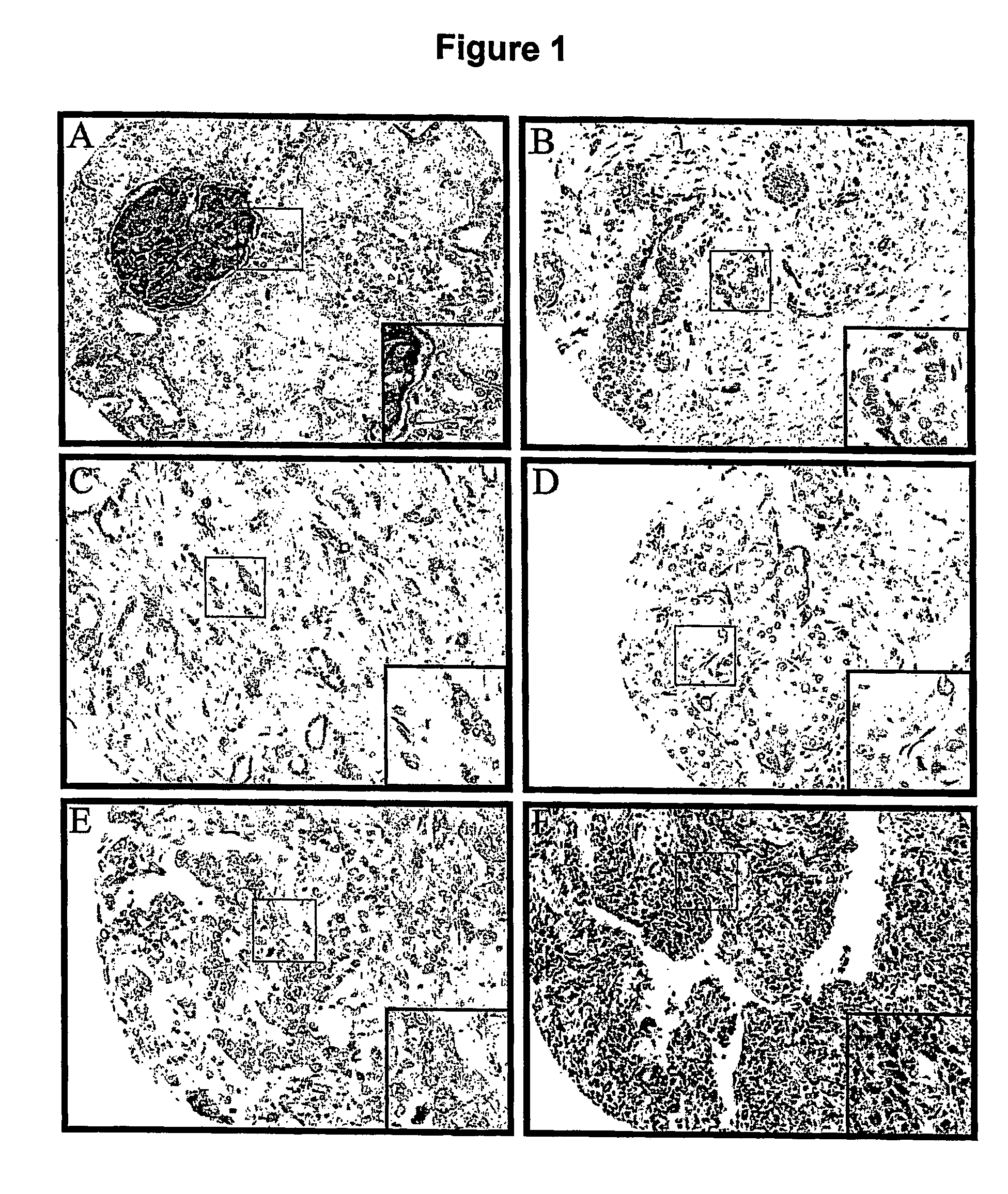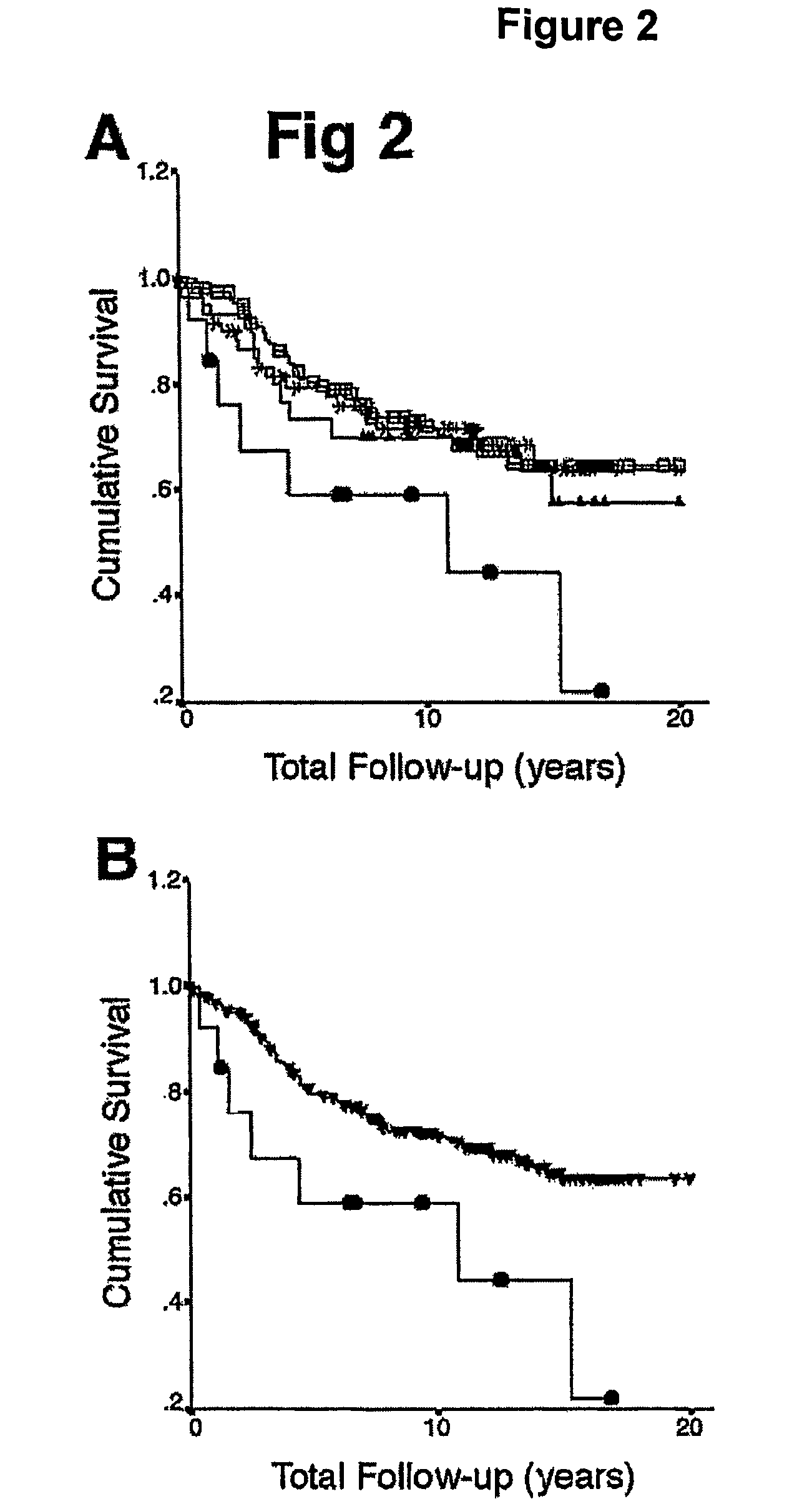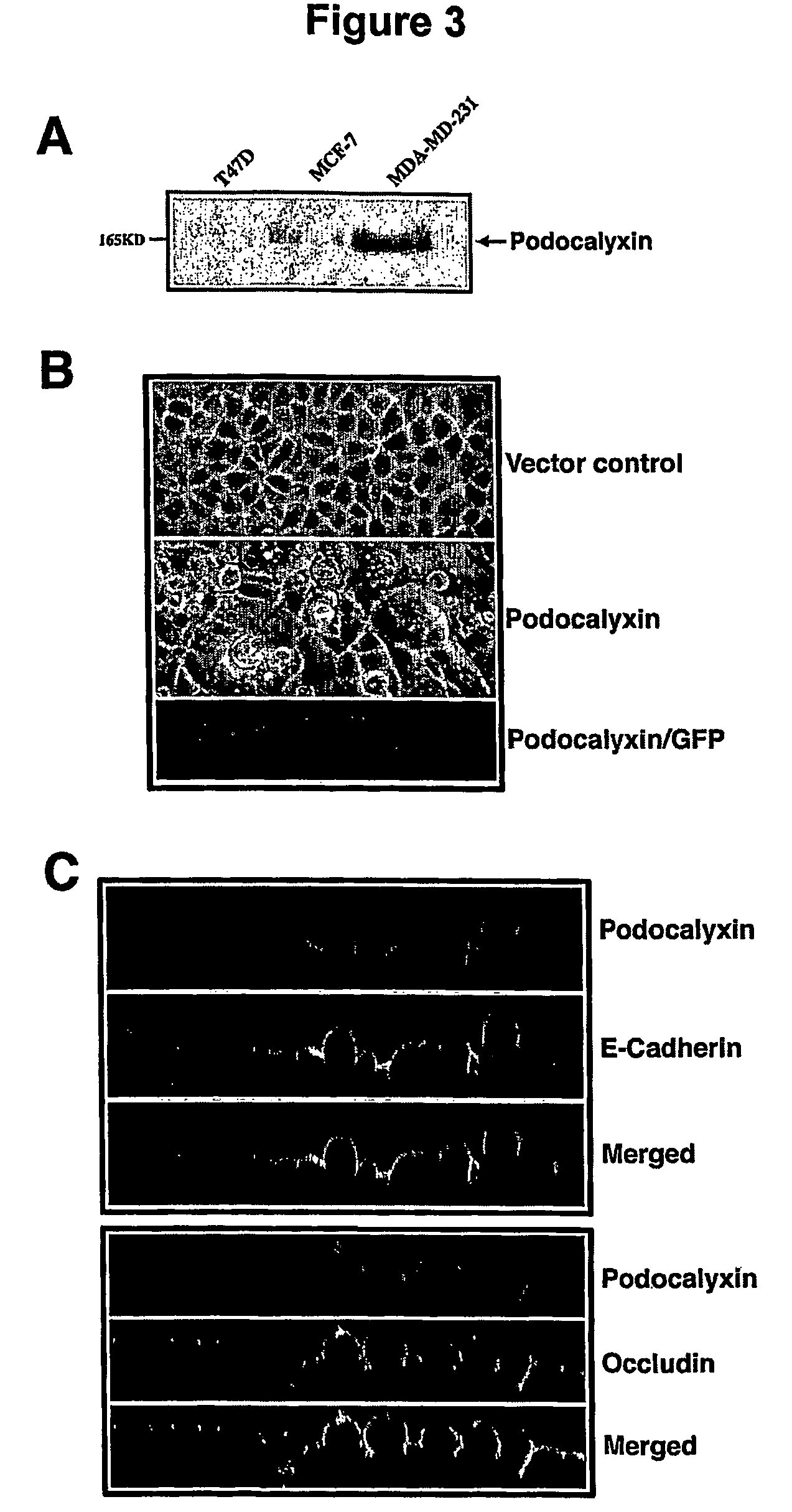Methods for detecting and treating cancer
a cancer and cancer technology, applied in the field of cancer detection and treatment, can solve the problems of perinatal death, lack of foot process formation, and persistence of tight junctions between podocytes
- Summary
- Abstract
- Description
- Claims
- Application Information
AI Technical Summary
Benefits of technology
Problems solved by technology
Method used
Image
Examples
example i
Materials and Methods
Tissue Microarray Construction
[0238]A total of 270 formalin-fixed, paraffin-embedded primary invasive breast cancer tissue blocks (archival cases from Vancouver General Hospital from the period 1974-1995) that had been graded according to the Nottingham modification of the Scarth, Bloom, Richardson method (Elston and Ellis, 1991) were used to construct a tissue microarray (TMA) as described previously (Parker et al., 2002). Briefly, a tissue-arraying instrument (Beecher Instruments, Silver Springs Md.) was used to create holes in a recipient block with defined array coordinates. Two 0.6 mm diameter tissue cores were taken from each case and transferred to the recipient block using a solid stylet. Three composite high-density tissue microarray blocks were designed and serial 4 μm sections were then cut with a microtome and transferred to adhesive-coated slides. Normal breast and kidney tissues were used as controls.
TMA Immunohistochemistry, Scoring and...
example 2
Endoglycan
Results
Tissue Distribution of CD34 Family Members
[0250]Data was compiled from published analyses on human and mouse CD34, Podocalyxin and Endoglycan (Krause 1996, McNagny 1997, Doyonnas 2001, Sassetti 2000) and from our unpublished observations on mouse Endoglycan. Endoglycan and Podocalyxin expression profiles were generated using unpublished data obtained from: 1) Northern blots of hematopoietic lineage cell lines, 2) RT-PCR of sorted hematopoietic subsets from bone marrow, 3) antibody stains and flow cytometry analysis using existing antibodies to CD34 (RAM34) Podocalyxin (PCLP1) and 4) Immunohistochemistry using the same antibodies. Results are shown in Table 4.
Preparation of Monoclonal Antibody with specific binding against Endoglycan
[0251]To make the rat monoclonal antibody, rats were immunized with a peptide corresponding to sequence from the extracellular domain: V A S M E D P G Q A P D L P N L P S I L P K M D L A E P P W H M P L Q G G C (SEQ ID NO: 10) linked to K...
PUM
| Property | Measurement | Unit |
|---|---|---|
| time | aaaaa | aaaaa |
| diameter | aaaaa | aaaaa |
| pH | aaaaa | aaaaa |
Abstract
Description
Claims
Application Information
 Login to View More
Login to View More - R&D
- Intellectual Property
- Life Sciences
- Materials
- Tech Scout
- Unparalleled Data Quality
- Higher Quality Content
- 60% Fewer Hallucinations
Browse by: Latest US Patents, China's latest patents, Technical Efficacy Thesaurus, Application Domain, Technology Topic, Popular Technical Reports.
© 2025 PatSnap. All rights reserved.Legal|Privacy policy|Modern Slavery Act Transparency Statement|Sitemap|About US| Contact US: help@patsnap.com



